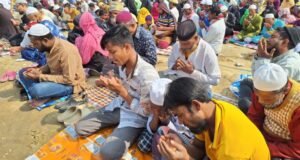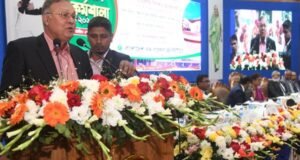
With continuing Syrian refugee arrivals in 2014, UN agencies and NGOs have been overwhelmed and are in need of additional funds for services, including psychosocial support for the most vulnerable.
“When I bid goodbye to him, tears brimming in my eyes, I thought it would be a matter
of months before we saw each other,” Fatima told Al Jazeera. “Now, more than two years
later, I have learned how to cope with the indefinite wait.”
Fatima, who did not provide a last name, was married for less than a year before having
to part with her husband, who remains in Syria. A majority of the people who now live
around her in Lebanon’s Bekaa Valley – at a refugee settlement where she moved in 2012
– are women and children.
In a nearby tent, mattresses are covered with blue plastic sheets, but the tent is still
imbued with the smell of recent, persistent downpours. Harsh winter storms and freezing
temperatures throughout the region have claimed the lives of several people, including
two young children.
Hundreds of thousands of Syrian refugees who fled their country are grappling for
survival in Lebanon, with no resolution in sight. And starting on January 5, Lebanon
began a mandatory visa requirement for all Syrians entering the country – a measure that
threatens to further sever families on different sides of the border.
According to the International Rescue Committee (IRC), a global humanitarian aid
organisation, the voices of female refugees have been stifled due to an increasing burden
of meeting basic needs. In a recent report drawing on more than 70,000 interviews with
female refugees, the IRC found a trend of “sexual exploitation and harassment, domestic
violence, and early and forced marriage”. Last year, the UN refugee agency found that
more than 145,000 Syrian refugee women were “fighting for survival” and caught in a
spiral of poverty, isolation and fear; by the start of this year, local organisations projected
that number to surpass 200,000 in Lebanon alone.
 Weekly Bangla Mirror | Bangla Mirror, Bangladeshi news in UK, bangla mirror news
Weekly Bangla Mirror | Bangla Mirror, Bangladeshi news in UK, bangla mirror news






